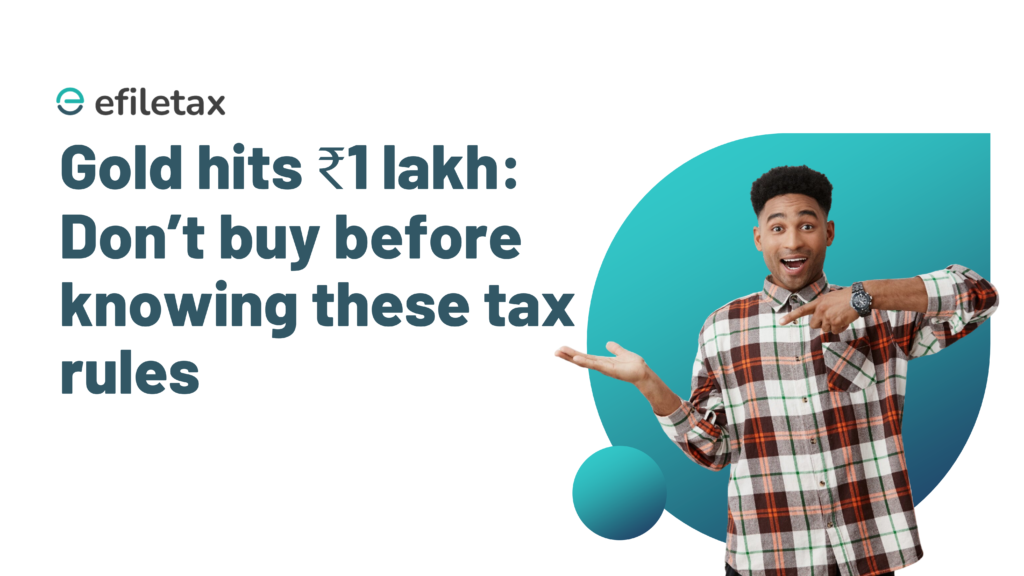
Gold price at ₹1 lakh: What it means for your taxes
Gold has hit a historic high of ₹1 lakh per 10 grams just ahead of Akshaya Tritiya, a time when Indians traditionally invest in the yellow metal. While the price surge is making headlines, many buyers overlook the tax implications of gold purchase — from GST to income tax and capital gains.
Let’s break it down in simple terms.
Tax on Gold Purchase: What You Pay
When you buy physical gold (jewellery or bars), here’s how you’re taxed:
- 3% GST on the value of gold
- 5% GST on making charges (if invoiced separately as a service)
- No input tax credit for personal use purchases
Always collect a tax invoice – it helps during resale and while calculating capital gains later.
Selling Gold? Here’s How You’re Taxed
| Held For | Tax Type | Rate |
|---|---|---|
| Less than 3 years | Short-term capital gains | As per your income slab |
| More than 3 years | Long-term capital gains | 20% with indexation |
- Gold ETFs, Sovereign Gold Bonds (SGBs), and Digital Gold may follow different rules.
- SGB interest is taxable annually, but capital gains on maturity are tax-free (Section 10(15)).
Legal Reference:
- GST on gold: CBIC Notification No. 1/2017-Central Tax (Rate)
- Capital gains: Section 48 and Section 112 of the Income-tax Act, 1961
- SGB Exemption: Circular No. 4/2016 by CBDT
Tax Implications for Akshaya Tritiya Buyers
- Purchase made for investment? Keep proof for future sale.
- Gifting gold above ₹50,000? The recipient may be taxed unless it’s from a relative (Section 56(2)(x)).
- Buying in cash above ₹2 lakh? Prohibited under Rule 114B – PAN is mandatory.
Buying Gold in 2025: Smarter Choices
- Prefer SGBs or Gold ETFs for better tax efficiency
- Keep digital records, especially if buying online
- If you’re a business gifting gold to clients – TDS and reporting norms may apply